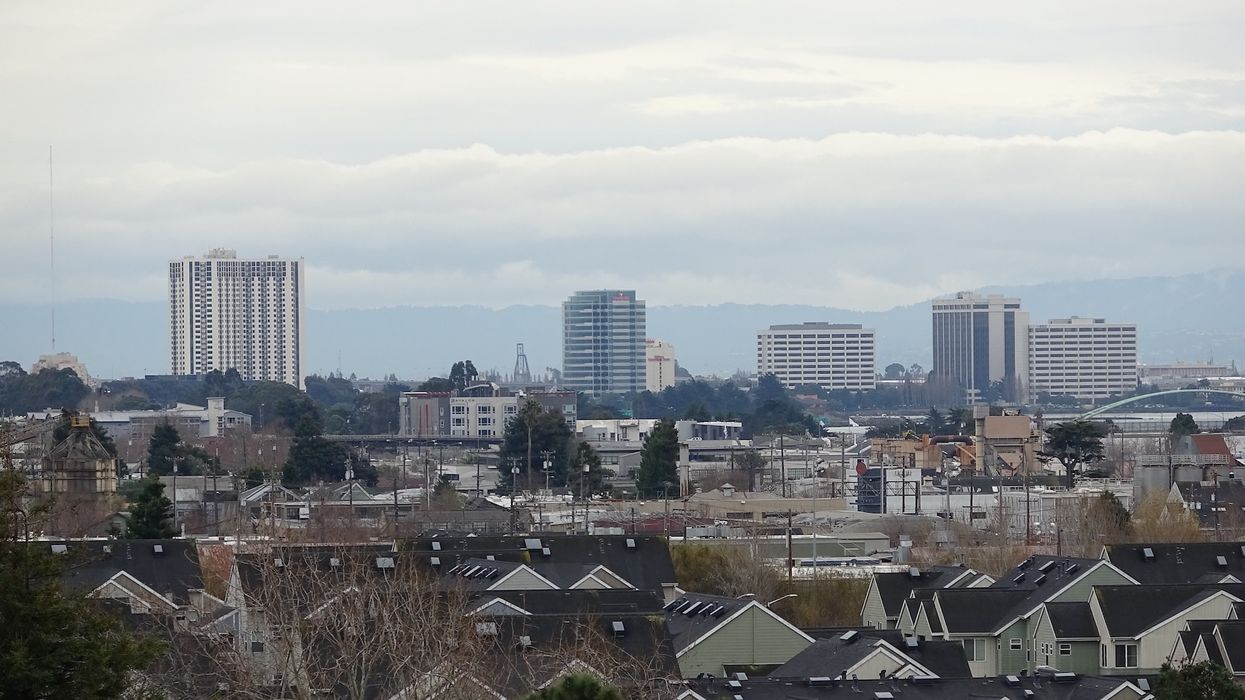
Urban skyline of Oakland, California on an overcast day, Jan. 8, 2019. (Photo by Smith Collection/Gado/Getty Images)

'the most extreme law in the state'
The Oakland City Council approved a ban on landlords running criminal background checks on potential tenants, a move it says will allow people released from prison to have a better chance at a successful life, according to KPIX-TV.
Supporters of the ban say it will improve the city's homelessness problem by making it easier for convicted criminals to find a place to live.
"When you have a safe place to call home, you're in a stronger position to get a job, to go to school, to get help that you need," said John Jones III, a mechanic who said he ended up on the streets after getting out of prison because no landlord would allow him to rent.
The California Apartment Association, which represents landlords, opposed the law and called it extreme.
"This ordinance is the most extreme law in the state. Federal Fair housing laws expressly exclude individuals convicted of illegal drug distribution and manufacture from protections. Landlords who may have used criminal background checks consistent with this law will now be prohibited," CAA spokeswoman Debra Carlton said.
There are some obvious safety concerns from landlords and tenants who fear the ban could allow dangerous criminals into their apartments or neighborhoods without knowledge of the landlord.
Landlords will have six months to adapt to the law, which doesn't apply to single-family homes, duplexes, triplexes, and in-law units if the owner is living on the property, nor does it apply to government-subsidized affordable housing because the federal government requires landlords to reject people convicted of manufacturing methamphetamine or who are on the state's lifetime sex offender list.
Landlords who are found to be breaking this law are subject to fines of $1,000 per violation.
The Berkeley City Council is set to vote on a similar measure soon. San Francisco also has a similar ban, although it isn't as strict as the one in Oakland.